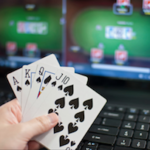Best Model for Regulated Online Poker

Online poker regulation started last decade. It started with minor, mostly benign offshore gaming commissions. These groups were often based in small countries with little other industry outside of tourism. Some had no bricks-and-mortar gaming industry. Some governments did not approve of this lax control of gaming that accepted customers from their country and took it a step further by regulating it themselves.
International Online Poker
It started with Sweden launching Svenska Spel Poker. That is the country’s lottery. It launched an online poker site in 2005. Austria quickly followed the same model. The British Columbia and Quebec lotteries in Canada also followed this path. The government receives all net proceeds from the operations of the sites. All use Boss Media poker software. Players in these countries have access to many international sites in addition to the lottery ones.
Online Poker in the US
Delaware in the United States followed a similar model when it launched in 2013. The Delaware Lottery operates online poker in the state. It is not the brand of the poker site. The state’s casinos – Dover Downs, Delaware Park and Harrington Raceway – are the brands used on the poker network. The Delaware Lottery taxes revenue at 100 percent until it breaks $3 million in a year. If revenue ever breaks $3 million annually, the tax rate becomes 43.5 percent of that amount.
All of these sites have one thing in common. They only accept players from within the country’s or state’s borders.
Ring-fenced Online Poker
International Ring-fenced Online Poker
Some countries decided to remove players from international pools but still allow gaming companies to provide the service. This permits PokerStars, iPoker, bwin.party and similar companies to spread online poker in the ring-fenced countries. The international player pools operate separately but the same software is used. This is referred to as ring-fencing.
Players in these countries may only sit at tables with others within their nation. France, Spain, and Italy do this in Europe. Each of these countries features a high tax rate. It is 46% in France, 25% in Italy and 20% in Spain.
Ring-fenced Online Poker in the US
Nevada and New Jersey use a similar model with a small exception. The companies that operate online gaming are the bricks-and-mortar casinos. These casinos in Las Vegas and Atlantic City partnered with experienced software providers from Europe to spread online poker. The tax rates in these states are lower than the European ring-fenced one. Nevada has a 6.75% tax rate, while it is 17.5% in New Jersey.
Regulation without ring-fencing
Some countries decided to tax online poker, while at the same time permitting players to access international sites. These countries often have a very low tax rate. It is 5% in Estonia. That rate is 11% in Belgium, 20% in The Netherlands, and 15% in the United Kingdom.
Which one has the best method?
The countries that offer regulations without ring-fencing tend to offer the best tax rates for operators and best choice for players. This is because players are more likely to give action to sites with larger player pools. Access to sites like Pokerstars.com is imperative to many tournament players. The tax rates are often more favorable in these countries.
The worst scenario is when a small country or state ring-fences its player pool, while at the same time requires an oppressive tax rate. Delaware is the best example of this where operators pay 100% until revenue reaches $3 million. Poker rake and casino win have come nowhere close to that threshold, meaning operators receive nothing for their efforts. The tax rate is 43.5% on revenue above $3 million annually should it ever rise above that amount.
To a lesser extent, France uses a terrible model due to its 46% tax rate. This causes rake to be higher than anywhere else in the world. The ring-fenced markets in Spain and Italy create similar problems, although both have a lower tax rate than France.
